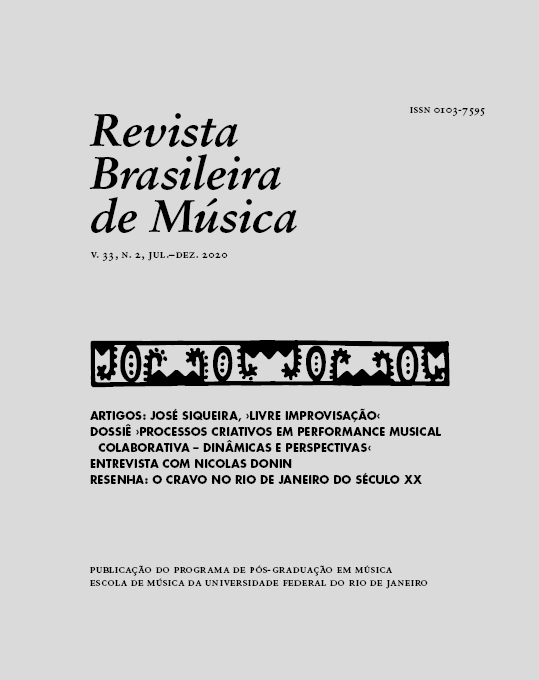“Caldo de cana”: report of a remote audiovisual recording made by a network of 220 Brazilian flutists

Abstract
This article reports the recent audio-visual recording of David Ganc’s baião Caldo de cana (1978), by the Brazilian Flutists Association (ABRAF) Orchestra. In order to bring together flutists during the period of social distancing due to COVID-19 pandemic, the recording of the work idealized by the abraf was performed remotely, from July to August 2020. The report describes the work process, the transformations resulting from the collaborative process by some participants and the technological problems and solutions found to accomplish the unprecedented task of editing audio and video produced by 220 flutists from all the states of Brazil. Latour’s writings (2005) and his Actor-Network-Theory help us to think about the human/object relationship, in this case, the facilitating/limiting interference of the computer in the recorded audiovisual event, as well as the relations and associations that transcended this collective of flutists.
Keywords
Flute orchestra. Pandemic. Remote recordings. Actor-network-theory.
Supplementary File(s)
Figura 28: Quadro final 220 flautistas e 1 percussionista. (Português (Brasil)) Figura 26: Mapa das telas. (Português (Brasil))Author Biography
David Ganc
Doutor em Música - Práticas Interpretativas pela UNIRIO, Bacharel em Música – Flauta, pela UFRJ. Bacharel em Professional Music, Magna Cum Laude, pela Berklee College of Music, Boston, MA, EUA. Foi professor substituto de saxofone na UFRJ (2016-2017). Lançou 6 CDs solo. Coautor, dos livros/CDs “Choro Duetos – Pixinguinha e Benedito Lacerda Vols. 1 e 2”, Ed. Irmãos Vitale (2010 / 2011), com as transcrições dos contrapontos de Pixinguinha.
